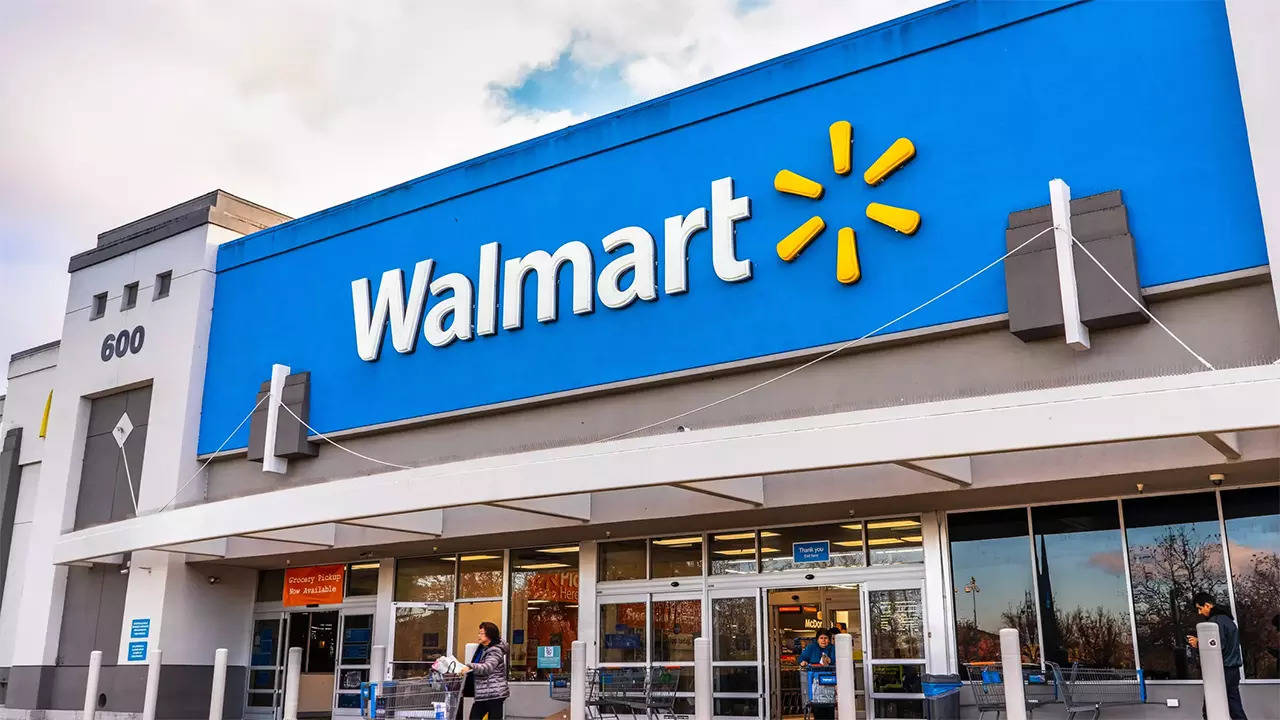
NEW YORK: U.S. retailer Walmart Inc is expected to strike a cautious tone for 2024 when it reports results on Tuesday.
Despite what was likely a bumper holiday season for Walmart, inflation continues to burden many Americans facing a high cost of living. Higher rents pushed U.S. consumer prices up more than expected in January, spooking markets and raising the possibility that interest rates will stay high for months longer than what investors expected.
Walmart is expected to post a roughly $11 billion rise in sales for the quarter spanning Nov. 1 to Jan. 31, or up 4%, according to LSEG estimates.
Walmart, the first major U.S. retailer to report results, had a robust holiday selling period, analysts at Cowen said.
Shopper visits to Walmart’s 5,000 U.S. stores rose 4.5% during the quarter, Cowen said, citing an internal survey. Shoppers also spent more, with credit-card spending rising nearly 4% from November to mid-January, Cowen said.
In contrast, at rival Target, which reports results next month, traffic rose just 0.3% with credit-card spending falling 9%, the brokerage said.
Analysts also expect Walmart to show stronger profitability thanks to lower supply chain costs and the falling price of gas since November, analysts said. Net income is expected to rise 8%.
For most of last year, consumer spending remained healthy buffeted by a strong job market. Consumers defied inflation to ring in a solid holiday shopping season.
With grocery prices still well above pre-pandemic levels, more shoppers are gravitating to Walmart because of its food costs, leading to market-share gains over grocery rivals, analysts at Bank of America said.
Walmart finds itself in a sweet spot in this inflationary environment as it gets about 70% of its sales from grocery, health and essential products, which consumers are focused on. The improved traffic this brings, in turn, improves its ability to sell non-food items such as apparel and furniture, even in a dis-inflationary environment, analysts said.
Due to its heft in grocery, Walmart is expected to report sales of $645 billion for fiscal 2024, more than double its closest competitor.
CAUTIOUS SUPPLIERS
Still, concerns linger about how fast inflation will cool this year. Several major Walmart suppliers are striking cautious tones.
Kraft Heinz, Mondelez, Hershey and PepsiCo flagged softer volume growth in their latest quarterly results as shoppers digested price hikes.
Ahold Delhaize, the operator of Stop and Shop and Food Lion stores in the U.S., reported a decline in sales in the region in part due to the stoppage of pandemic-related hunger relief benefits last year.
Two investors said they expect Walmart executives to shed fresh light on American shoppers’ behavior following inflation data. “Are they more resilient to price hikes than we think?,” said David Klink, senior analyst at Huntington Private Bank which owns more than $50 million in Walmart stock.
Charles Sizemore, chief investment at Sizemore Capital Management, will watch the degree to which shoppers are shifting what and where they buy in order to save money. “If (Walmart) they come in and say they are seeing inflation is sticky and are finding it difficult to pass those on to customers, that would be bad for Walmart and the industry in general,” he said. Sizemore Capital owns about $2 million of Walmart shares.
Arun Sundaram, an analyst at CFRA Research, expects Walmart to issue conservative guidance, forecasting sales growth of 3% for its fiscal year ending Jan 31, 2025. This compares to the about 5% to 5.5% growth it currently expects for fiscal 2024. To be sure, Walmart historically issues a muted outlook at the start of the year and then goes on to raise it later.
Sizemore said he remains bullish on Walmart’s stock despite its high valuation of around 23 times forward earnings.
“It has been a somber retail environment, but Walmart has been doing really well,” he said.



